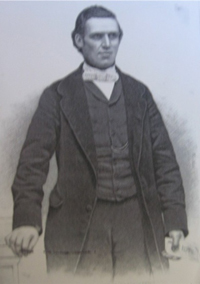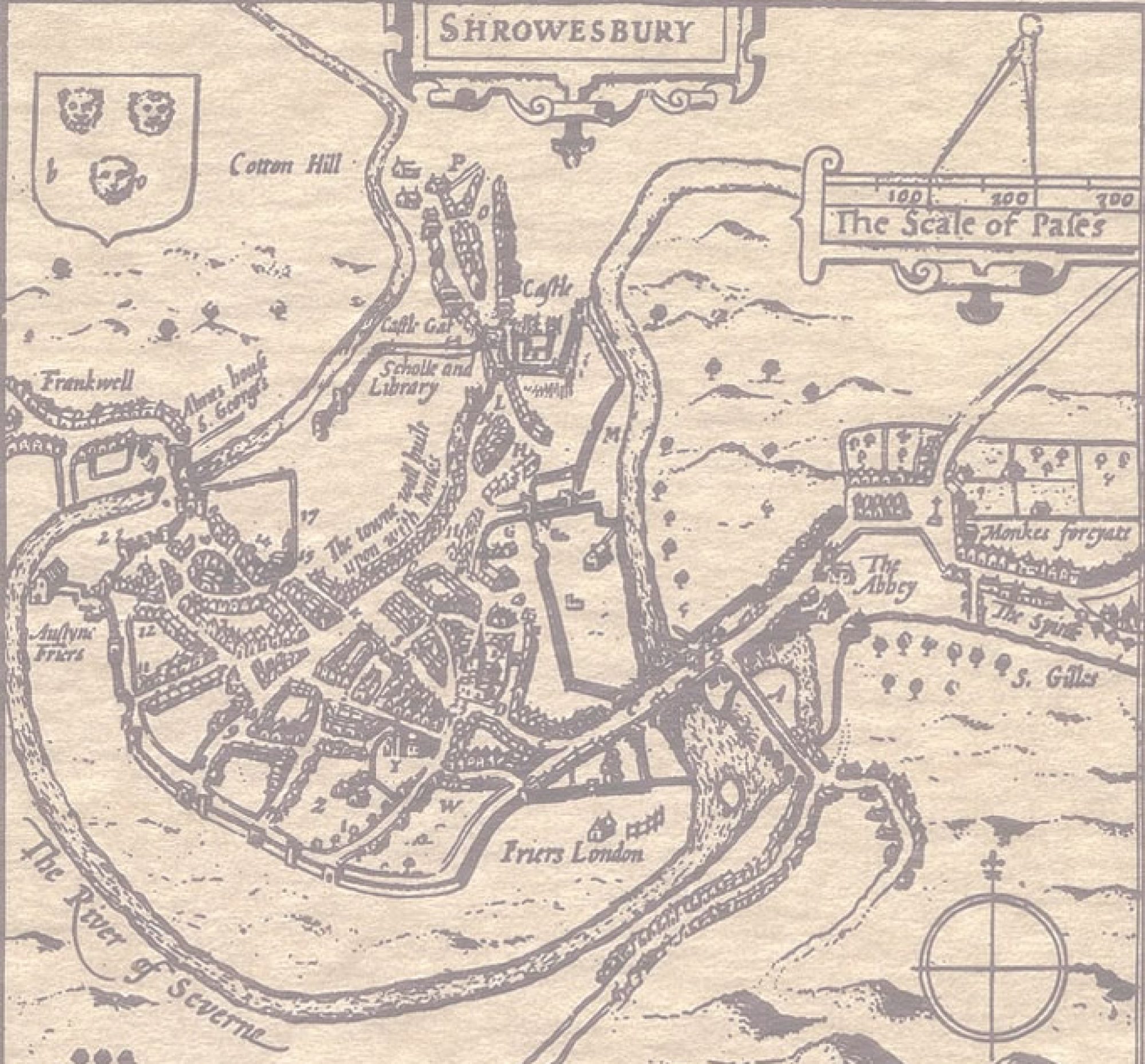There have been times throughout the history of the church that God seems to have been especially present, bringing many to faith and doing other wonderful things. Once such worldwide awakening began in America in 1857, and spread to Ulster in 1859. This is how it reached Wellington in Shropshire, and shows us the importance of prayer. The following is an extract from a book on the revival taken from eye witness accounts [J Edwin Orr, The Second Evangelical Awakening in Britain, Marshall, Morgan and Scott, 1949, p.131ff].
‘In June 1859 Dr J Edward Cranage of Old Hall, Wellington visited Ulster, strongly prejudiced against the phenomena manifested there. His first impressions increased his dislike, but the sight of scores upon scores brought to repentance day after day in Ulster broke down his prejudice, and ‘he was obliged to confess that the work was wrought by the power of the Holy Ghost [Holy Spirit]. He returned to Wellington, bowed down under a sense of his own unworthiness.’
A little group of about thirty devout Christians met privately to hear Dr Cranage’s account of the revival. A dozen of them agreed to commence a daily prayer meeting, so an empty shop was rented and a prayer meeting was announced for the same night. The shop was crowded with standing people (there were no seats) and nightly the place was packed in anticipation of an immediate Pentecost, which did not come; so the numbers dwindled to a dozen or less who kept on praying through all discouragements. There were very few conversions, but the keenest workers were unconsciously being trained. However, the prayer meetings remained a centre of inter-denominational activity, and an aggregate of 17,739 attended the meetings for prayer in 1860, an average of 341 per week.
In 1861 Dr Cranage revisited Ireland, and whilst there (July) received rather doleful reports of the prayer meeting, with a suggestion that it be disbanded. He begged his friends on no account to discontinue the work, for without doubt their prayers would be answered. On August 1st 1861 Dr Cranage returned to Wellington and found the place filled again; and night after night, with no means used other than prayer meetings, six, eight, ten or twelve people were converted.
Greater things began to happen at the beginning of October 1861, when Denham Smith of Dublin won additional ‘trophies of grace’ in the Town Hall, ‘which was literally crammed, numbers being unable to gain admission.’ Denham Smith’s ‘son in the faith’, T Shuldham Henry [a London barrister] was invited to Wellington, and held his first meeting in the Baptist Chapel, the second in the Wesleyan Chapel, and the third in the Town Hall, with a few conversions. He returned for three days the following week, and not fewer than 100 converts were won. He was followed by Richard Weaver (12th November 1861), under whose ministry striking conversions occurred. A notorious gambler gathered together his dice and cards, told his wife that he was about to play his best game, and threw them into the fire. A number of cockfighters beheaded their birds and ate the fowls for dinner. Poachers and prize-fighters likewise repented. Richard Weaver’s effectiveness was due in part to the fact of his being a native Salopian, whose wicked life prior to conversion had been well known.
Evangelist followed evangelist…and the prayer meetings continued nightly, accumulating an aggregate attendance of 45,614 in 100 weeks. Richard Weaver returned to address 5,000 people outdoors on a bitterly cold February day, and, after a two-hour meeting, hundreds were converted. Weaver received 200 or more letters from individual converts, and it was thought that many had not written their testimony, but were nevertheless transformed.
The work was still accomplishing much good in 1865, when Richard Weaver came and addressed ‘immense congregations, with great numbers unable to get into the hall.’…The reports indicate that another phase, social and philanthropic, had begun. Baptists and Congregationalists in Wellington in the revival period increased membership by 66%, Methodists by 75%, and the Anglicans consolidated a new parish [All Saints].’

Richard Weaver’s story also illustrates the power of prayer, this time that of a mother. Weaver was born in Asterley, Shropshire in 1827. His father was a drunkard who beat his wife and children, but his mother was a fervent Methodist, who would spend hours praying for Richard and his brothers. On at least one occasion Richard beat up his mother as she prayed for him. Richard was illiterate and worked up to 17 hours a day underground in the coal mines. As he grew up his life was filled with drinking, fighting and gambling, but in 1852, at the age of 24 he was wonderfully saved. He immediately started sharing his new-found faith, and not long afterwards began giving his testimony in public and preaching. This became his full time occupation, and he spent the rest of his life travelling the country, often speaking to those who seemed almost beyond hope of redemption, and seeing thousands won for Christ. Just before he died in 1896 he sent a telegram to a dear friend that simply said, ‘Just going home shouting victory!’
